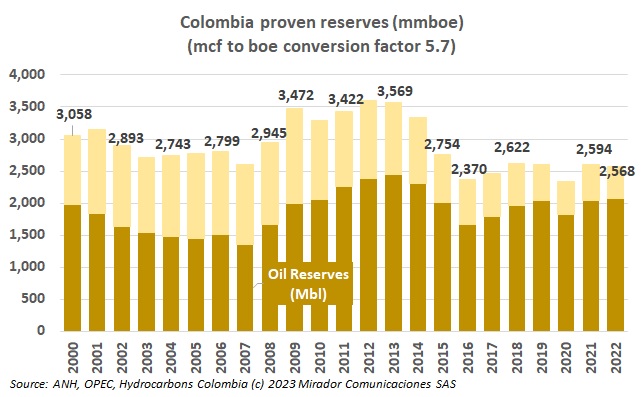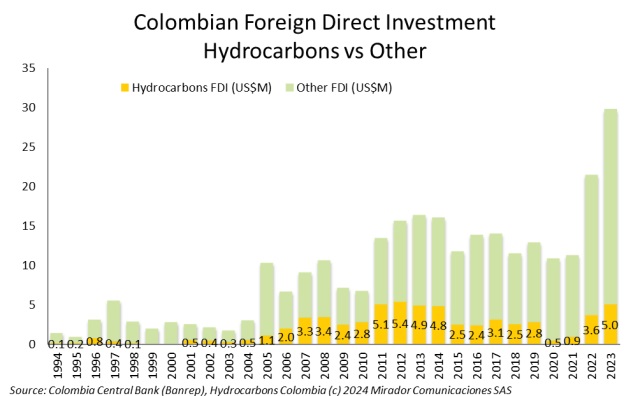As part of the economic revitalization plan set to be presented to the Congress, the Ministry of Finance (MinHacienda) announced several tax changes in Colombia.
President Gustavo Petro issued a request to Ecopetrol (NYSE: EC) following the demand from the Special Jurisdiction for Peace (JEP) for the NOC to provide information about potential links to paramilitarism.

The Foundation for the Rule of Law (FED Colombia) joined the chorus of voices raising concerns about Colombia’s impending risk of losing its energy security and sovereignty in the field of hydrocarbons.
In the journey towards energy transition with alternative sources, encouraging achievements reflect a growing global awareness of the issue.
Environmental licenses remain a significant obstacle for various energy projects in Colombia, posing challenges for the industry and its stakeholders and becoming a major cause of delays, ultimately jeopardizing the country’s energy security.
President Petro urged the Ministry of Labor (MinTrabajo) to take charge of the labor reconversion of miners in La Guajira to prevent them from ending up jobless.
Colombian President Gustavo Petro said this in his X (Twitter) account after the country’s Armed Forces successfully downed 15 dissident FARC soldiers near hotspot El Plateado, Cauca. Maybe it was the president’s well-known flare for the dramatic. Maybe it was frustration. Maybe it was a message to the dissident FARC or the ELN or the Clan del Golfo or all. Maybe it was a mix of all three reasons.

The oil and mining sector was responsible for 34.3% of Colombia’s foreign direct investment in 2023, but taxes are affecting this.
Ecopetrol (NYSE: EC) shuffled its top management last week with six new appointments, but the reasons for the departure of the Executive Vice President of Operations, Alberto Enrique Consuegra, with 30 years of experience in the energy sector and seven at the Ecopetrol Group, remained unclear.
The arbitration saga surrounding the Reficar case has reached its conclusion, marking a significant victory for Colombia.